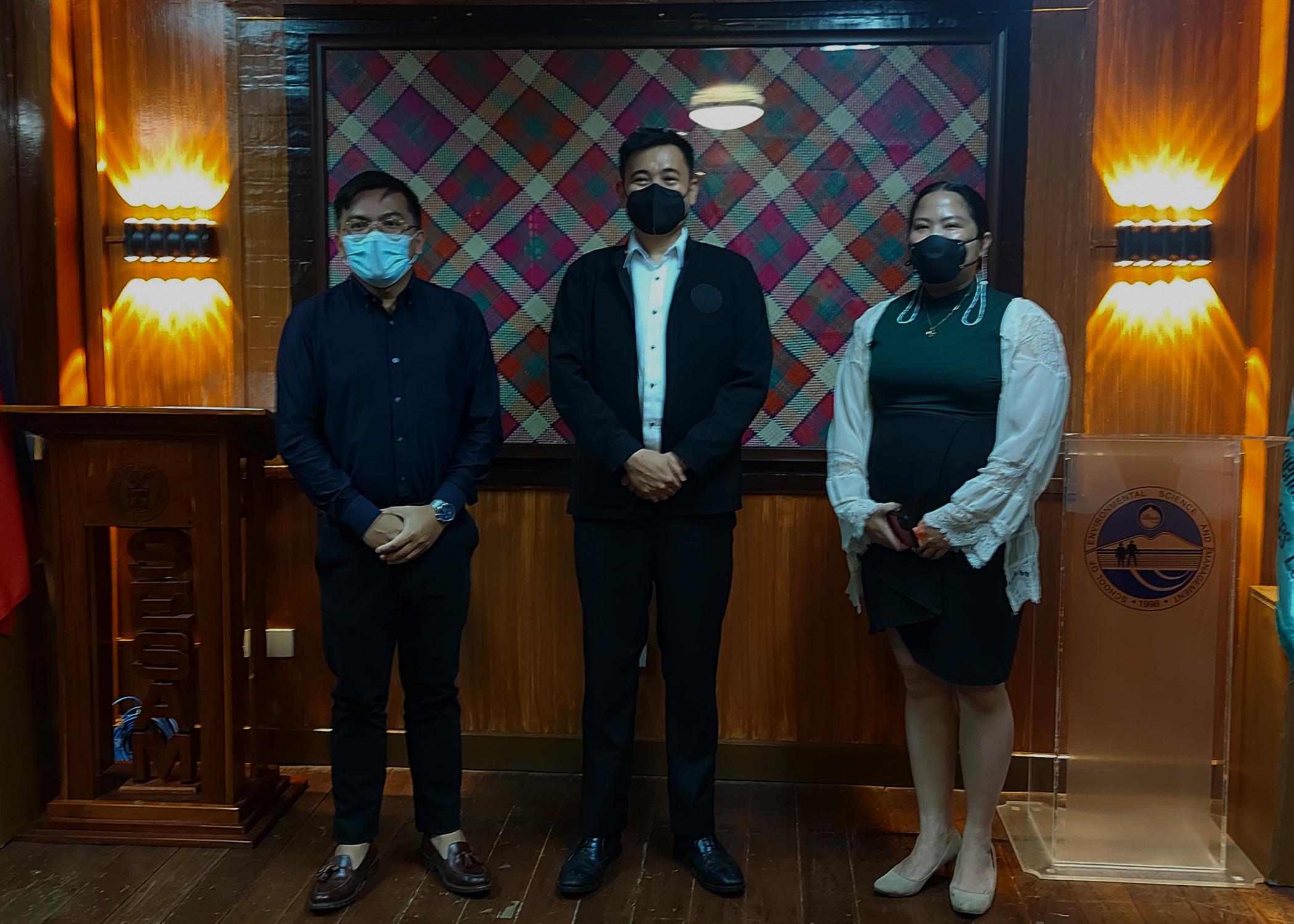The UPLB Interdisciplinary Studies Center (IdSC) for Water and the School of Environmental Science and Management (SESAM) hosted Secretary and Commissioner Robert E.A. Borje of the Climate Change Commission (CCC) for a data sharing and partnership meeting last April 8, 2022. Present in the meeting were Dr. Rico C. Ancog, Dean of SESAM, Dr. Patricia Ann J. Sanchez, Chair of IdSC Water and Member of CCC National Panel of Technical Expert, Mr. Alexis D. Lapiz, CCC Strategic Partnership Division Chief, CCC Staff, and IdSC Water Researchers.
The CCC through the CCO, SESAM and IdSC Water signified to strengthen their institutional partnerships. An existing MOA will be revisited and reviewed to continue the collaborations in research and extension. Both parties recognize the importance of science-based policies and this will only come into fruition if the policy makers are well informed of the outputs of the scientific community. Similarly, the research outputs will only be beneficial to the community only if these transcends to the stakeholders. “We already know what to do to combat climate change and we need partners”, Sec. Borje stressed. He also posed a challenge to the participants on how to make important interesting and interesting urgent as we face issues on climate change.
Data acquisition and utilization
To give a background on how to utilize and analyze available climate datasets, a brief overview of the Data Integration and Analysis System (DIAS) was presented. DIAS, an online free-access database and archiving system funded under MEXT (Ministry of Education, Culture, Sports, Science and Technology), is housed in JAMSTEC (Japan Agency for Marine-Earth Science and Technology) and a product of collaborative efforts from various universities and research institutions. These datasets can be localized and translated to useful information that may aide decision and policy makers.
The process and application involving the integration of climate change projections from global climate models under various emission scenarios to hydrologic facets (e.g., water supply and flood) was showcased using simulation results of Abacan Watershed in Angeles City, Pampanga. Understanding the effects of climate change in watershed’s water balance is useful for effective planning, design and management of water resources.
A study on solar radiation management (SRM), a geoengineering approach and a possible climate change mitigation strategy, was also presented. Currently, there is a global effort on localized research to determine the possible implications of SRM in some regions or countries. For the Philippines, the team aims to look into the implications of SRM to the agricultural productivity and physiology and the hydrological response of selected watersheds draining to Laguna and Lanao Lakes. (CBGigantone)

